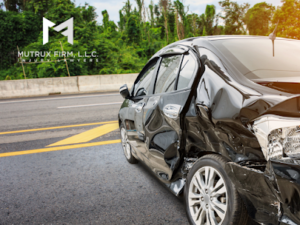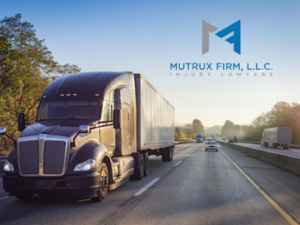Who Is Liable for a Truck Accident in Missouri?
Do you know who is liable for a truck accident? Truck accidents can be devastating and result in significant injuries, property damage, and, in more severe cases, even fatalities. When these types of accidents occur, one of the most common questions is, “Who is liable for a truck accident? Is it the truck driver or the trucking company?
Could there have been a mechanical defect or a lack of maintenance that could have led to the accident? There are many different variables at play here; therefore, it is important that you have a reputable attorney by your side to help you throughout your case. Let’s learn more about the causes of truck accidents and how they can be prevented.
Understanding the Factors Contributing to Truck Accidents
When diving deeper into what factors contribute to a truck accident, it’s important to realize that quite a few different elements must come into play, including:
- Driver Error: Like any motor vehicle accident, driver error is one of the leading causes of truck accidents. This can include speeding, distracted driving, fatigue, impairment due to alcohol or drugs, and failure to obey traffic laws.
- Vehicle Malfunction: Mechanical failures such as brake failure, tire blowouts, steering problems, and defective parts can significantly increase the risk of a truck accident.
- Poor Maintenance: Neglecting regular maintenance and inspections can lead to hazardous conditions that compromise the safety of the truck and increase the likelihood of an accident.
- Weather Conditions: Adverse weather conditions such as rain, snow, ice, and fog can impair visibility and road traction, making it more challenging for truck drivers to operate safely.
- Cargo Issues: Improper loading or securing of cargo can cause the truck to become unstable or lead to cargo spillage, increasing the risk of accidents.
Identifying Potentially Liable Parties
When determining liability in a truck accident, most crashes involve multiple parties who likely share responsibility. The most common parties who are held liable for truck accidents include:
- Truck Driver: The truck driver may be held liable for an accident if their negligence, recklessness, or violation of traffic laws contributed to the collision. This can include actions such as speeding, distracted driving, or driving under the influence of alcohol or drugs.
- Trucking Company: The company that owns or operates the truck may also be liable for an accident, especially if the company was negligent in hiring, training, or supervising its drivers. The company could also be held accountable for their lack of maintenance, resulting in a mechanical failure, leading to the wreck.
- Vehicle Manufacturer: If a truck accident was caused by a defect in the vehicle or its components, the manufacturer or distributor of the truck or its parts may be liable under product liability laws. This can include defects in brakes, tires, steering mechanisms, or other critical components.
- Improper Loading: If improper loading or securing of cargo contributed to the accident, the company responsible for loading the cargo may share liability for any resulting damages.
- Government Entities: In some cases, government entities responsible for road design, maintenance, or signage may be liable if their negligence contributed to the accident. This could include issues such as poorly maintained roads, inadequate signage, or hazardous road conditions.
- Third-party Contractors: If the trucking company contracted third-party services such as maintenance, inspection, or cargo loading, these contractors may also share liability if their negligence contributed to the accident.
- Other Drivers: In multi-vehicle accidents involving trucks, other drivers on the road may also share liability if their actions or negligence played a role in causing the collision.
Legal Considerations in Determining Liability
When establishing liability in a truck accident, there needs to be a through investigation of the crash, and how it happened in the first place. Some items to take into consideration include:
- Negligence: For negligence to be a factor, a party had to of breached their duty of care, resulting in harm to another party. In truck accidents, establishing negligence may involve demonstrating that the defendant (e.g., the truck driver, trucking company, or manufacturer) failed to exercise reasonable care, causing the accident.
- Vicarious Liability: Under the legal doctrine of respondeat superior, trucking companies may be held vicariously liable for the actions of their employees, including truck drivers, maintenance workers, etc. This means that even if the truck driver is directly responsible for the accident, the company may also be held accountable for its employees’ actions.
- Product Liability: If a truck accident was caused by a defect in the vehicle or its components, the injured party may pursue a product liability claim against the manufacturer or distributor of the defective product. Product liability laws vary by jurisdiction but generally allow plaintiffs to seek compensation for injuries caused by defective products.
- Comparative Fault: In some jurisdictions, including those that follow a comparative fault system, liability may be apportioned among multiple parties based on their respective degrees of fault. This means that even if the plaintiff (injured party) contributed to the accident to some extent, they may still be entitled to recover damages. However, the amount awarded may be reduced based on the percentage of fault.
- Statute of Limitations: It’s important to be aware of the statute of limitations governing personal injury claims in your jurisdiction. This is the timeframe within which a lawsuit must be filed after the accident occurred. Failing to file a claim within the statute of limitations can result in the loss of the right to seek compensation.
Steps to Take After a Truck Accident
Being involved in a truck accident can be a traumatic experience; however, it is important to do the following after the accident to improve your chances of recovery and compensation.
- Seek Medical Attention: Your health and safety should be the top priority. It is important to seek medical attention immediately, even if your injuries seem minor. Some injuries may not be immediately apparent, and delaying medical treatment could worsen your condition.
- Report the Accident: Contact law enforcement to report the accident and ensure that an official accident report is filed. Be cooperative with the responding officers and provide them with accurate information about the accident.
- Gather Evidence: If you’re able to do so safely, gather evidence at the scene of the accident. This may include taking photographs of the vehicles involved, obtaining contact information from witnesses, and documenting road and weather conditions.
- Avoid Making Statements: Refrain from making statements to insurance adjusters or other parties involved in the accident until you’ve consulted with an attorney. Anything you say could potentially be used against you in future legal proceedings.
- Contact an Attorney: Truck accidents often involve complex legal issues, and navigating the claims process can be challenging. Consult with an experienced personal injury attorney who can provide guidance and advocacy on your behalf.
Contact the Mutrux Firm Today!
Being involved in a truck accident can be a difficult experience. Multiple parties are often involved, and they all must be held liable for your injuries. However, the legal process can be extremely complex and difficult to navigate on your own. That’s where the attorneys at the Mutrux Firm can help! Our attorneys have a track record of success for their truck accident clients and want to make sure that you are compensated for your injuries and property damage. Don’t enter the fight alone, get in touch with us at (888) 550-4026 or contact us here.
- Can You Claim a Car Accident Without a Police Report in Mo.? - July 12, 2024
- Who Pays for a Rental Car After an Accident? - July 8, 2024
- How Much Compensation Can I Receive for a Hit & Run Accident? - June 28, 2024

